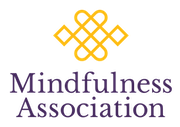What is Second-Generation Mindfulness?
The Mindfulness Association’s mindfulness trainings, including our eight-week Mindfulness Based Living Course (MBLC) are second-generation mindfulness-based approaches (SG-MBAs).
Second-generation mindfulness-based approaches represent a development beyond traditional, first-generation approaches, such as MBSR and MBCT. Second generation approaches aim to offer a more comprehensive and authentic approach to mindfulness by grounding it more firmly in its traditional Buddhist roots, including ethical aspects such as loving kindness and compassion and expanding its applications beyond clinical applications.
You can read more about the grounding of the Mindfulness Association’s approach to mindfulness, compassion, insight and wisdom meditation in the Tibetan Buddhist Mahamudra tradition by reading Choden’s recent articles that have been published in the Mindfulness journal.
Please see: https://www.mindfulnessassociation.net/about/publications/mahamudra-and-mindfulness-series/
Our Approach
SG-MBAs, such as the MBLC approach developed by the Mindfulness Association integrate more of the spiritual and ethical aspects of mindfulness found in Buddhist traditions. This includes a greater emphasis on cultivating positive mental qualities like kindness and compassion, alongside broader practices beyond just mindfulness meditation.
Our approach includes practices of mindfulness meditation, including bodyscan, mindful movement and mindfulness sitting practice with a support of breath or sound. Our mindfulness practices are not concentration practices, in that we do not concentrate on breath, sound or body sensations to the exclusion of everything else. Instead, we use a support of breath, sound or body sensation as an anchor to stay in the present so that we can become aware of the activity of the mind as it unfolds moment by moment.
Our mindfulness training includes kindness practices, such as memories of kindness and kindness for self and other, the RAIN acceptance practice and the daily life self-compassion break. This supports the development of an attitude of kindly, allowing, curiosity towards the activity of the mind and an ability to sooth ourselves rather than give ourselves a hard time when we experience challenges or difficulties in our meditation practice or in our life. The focus on kindness and compassion brings an ethical element to our mindfulness training.
Our mindfulness training also includes the observer and undercurrent model of mind derived from Tibetan Buddhist Mahamudra training. This model enables us to understand the dynamics of the mind so that we can learn to navigate the mind more skilfully. The undercurrent includes the habitual autonomous arising of mental content, such as thoughts and feelings. The observer can observe the undercurrent, but has a constant urge to engage with the undercurrent, a process which results in us getting caught up in thinking, distracted and out of touch with our present moment experience.
In contrast, first generation mindfulness-based approaches (FG-MBAs), such as Mindfulness Based Stress Reduction (MBSR) and Mindfulness Based Cognitive Therapy (MBCT) primarily focus on mindfulness meditation, using a core technique of focusing on the present moment. These approaches tend to be used in clinical settings for conditions like stress and depressive relapse.
Practice Second-Generation Mindfulness
To familiarize yourself with this model, try this practice or this mini-meditation.
Find out more
If you are interested in reading some research about second generation mindfulness-based approaches, please follow these links:


